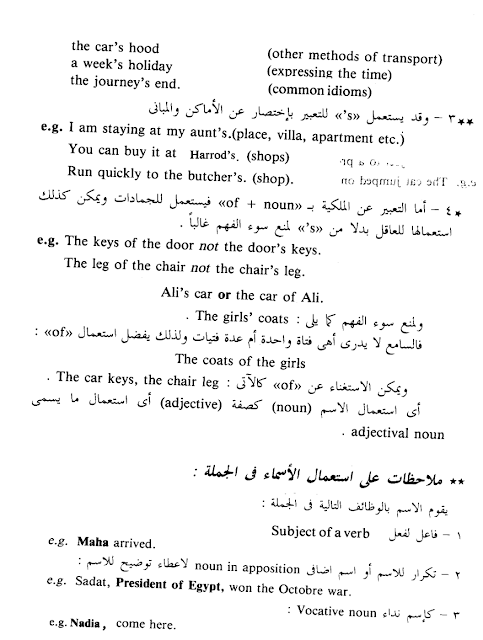Pronouns
As we know, if you want to be a good speaker for English you must know its grammer well, so here you will find the lessons which will help you to achieve you goal.
1)
Pronouns
Pronouns are
words we use in the place of a full noun.
There are many different kinds of pronouns.
- personal pronouns
- it and there
- you and they
- possessive pronouns (see possessives:- pronouns)
- this, that, these and those
- one and ones
- questions
- reflexive pronouns
- reciprocal pronouns: each other and one another
- indefinite pronouns
- relative pronouns
personal pronouns
We have both subject and object pronouns:
Subject
|
Object
|
I
|
me
|
you
|
you
|
he
|
him
|
she
|
her
|
it
|
it
|
we
|
us
|
you
|
you
|
they
|
them
|
This is Jack. He’s my brother. I don’t think you have met him.
This is Angela. She’s my sister. Have you met her before?
Talk to a friend. Ask them to help you.
You could go to a doctor. They might help you.
This is Angela. She’s my sister. Have you met her before?
Talk to a friend. Ask them to help you.
You could go to a doctor. They might help you.
Subject pronouns
We use subject pronouns as subject of the verb:
I like your dress.
You are late.
He is my friend
It is raining
She is on holiday
We live in England.
They come from London.
You are late.
He is my friend
It is raining
She is on holiday
We live in England.
They come from London.
Warning
|
| Remember: English clauses always have
a subject:
His father has just retired.
If there is no other subject we use it or there.
We call this a dummy subject.I’m waiting for my wife. |
Object pronouns
We use object pronouns:• as the object of the verb:
Can you help me please?
I can see you.
She doesn’t like him.
I saw her in town today.
We saw them in town yesterday, but they didn’t see us.
• after prepositions:I can see you.
She doesn’t like him.
I saw her in town today.
We saw them in town yesterday, but they didn’t see us.
She is waiting for me.
I’ll get it for you.
Give it to him.
Why are you looking at her?
Don’t take it from us.
I’ll speak to them.
I’ll get it for you.
Give it to him.
Why are you looking at her?
Don’t take it from us.
I’ll speak to them.

Comments
Post a Comment